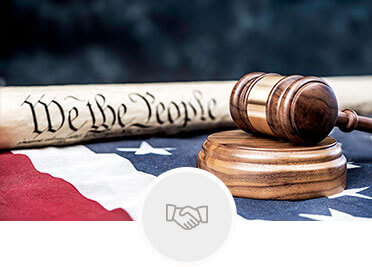PRACTICE AREAS
Experienced lawyers working for you to help you through every part of life.
Civil Litigation
Looking for a Civil Litigation Lawyer to deal with your civil litigation matter...
Business Law
We can assist you with any business or corporate legal issues that you or your company may be facing..
Real Estate Law
Minhas Lawyers Professional Corporation has extensive experience preparing...
YOU HAVE QUESTIONS.
WE HAVE ANSWERS.
MEET OUR LAWYERS



KARANJOT SANGHA
B.Sc., LL.B
Barrister, Solicitor & Notary Public
(905) 671-9244karanjot@minhaslawyers.ca

Ravinder Tambar
B.A, LL.B, LLM
Barrister, Solicitor & Notary Public
(905) 671-9244ravinder@minhaslawyers.ca
RECENT LEGAL ARTICLES
Proactive Planning for the Future: Best Will & Estate Strategies
Are you prepared for the future? It’s never too early to start thinking about your will and estate planning strategies. Will and estate planning are important aspects of proactive planning for the future. A will serves as a legal instrument delineating the allocation of an individual’s assets following their demise, enabling them to designate recipients…
Read MoreUnveiling the Mysteries: Surprising Facts About Business Law
Business law, also referred to as commercial law, contains a broad set of rules and laws that dictate the conduct of business within a nation. It governs a wide range of aspects from the formulation of contracts, which do not necessarily need to be written but can also be verbal or written across various platforms…
Read MoreThe Power of Appeals: Know Your Rights and How to Navigate the Legal System
The appeals and judicial review process stand as the important aspects of the legal system, offering pathways to reassess legal determinations made by lower rules or administrative entities. These procedures, integral to the law and fair administration of justice, ensure that every aspect of the law is subject to review and that the principles of…
Read MoreREQUEST A CALL
Reviews
Very, very professional services. Mr. Manpreet Minhas handled my immigration matter very professionally. Their fees are very reasonable. One of the best lawyers…A++++.
Manpreet Minhas and his team are very Knowledgeable, Professional and result oriented. Had a very positive experience on a real estate dealing with Mr. Minhas and his team who are focused on details and positive experience for clients. Will definitely use service if needed in future. Thanks and best wishes.

Minhas Lawyers Professional Corporation is a multi-practice law firm based in Mississauga. We advise and represent clients across various segments and practice areas.
Follow Us On
Business Hours
Monday – Friday:
9:00 am to 6:00 pm
Saturday - Sunday:
Book Appointments Only
Contact Us
Phone and Fax
Email Address











